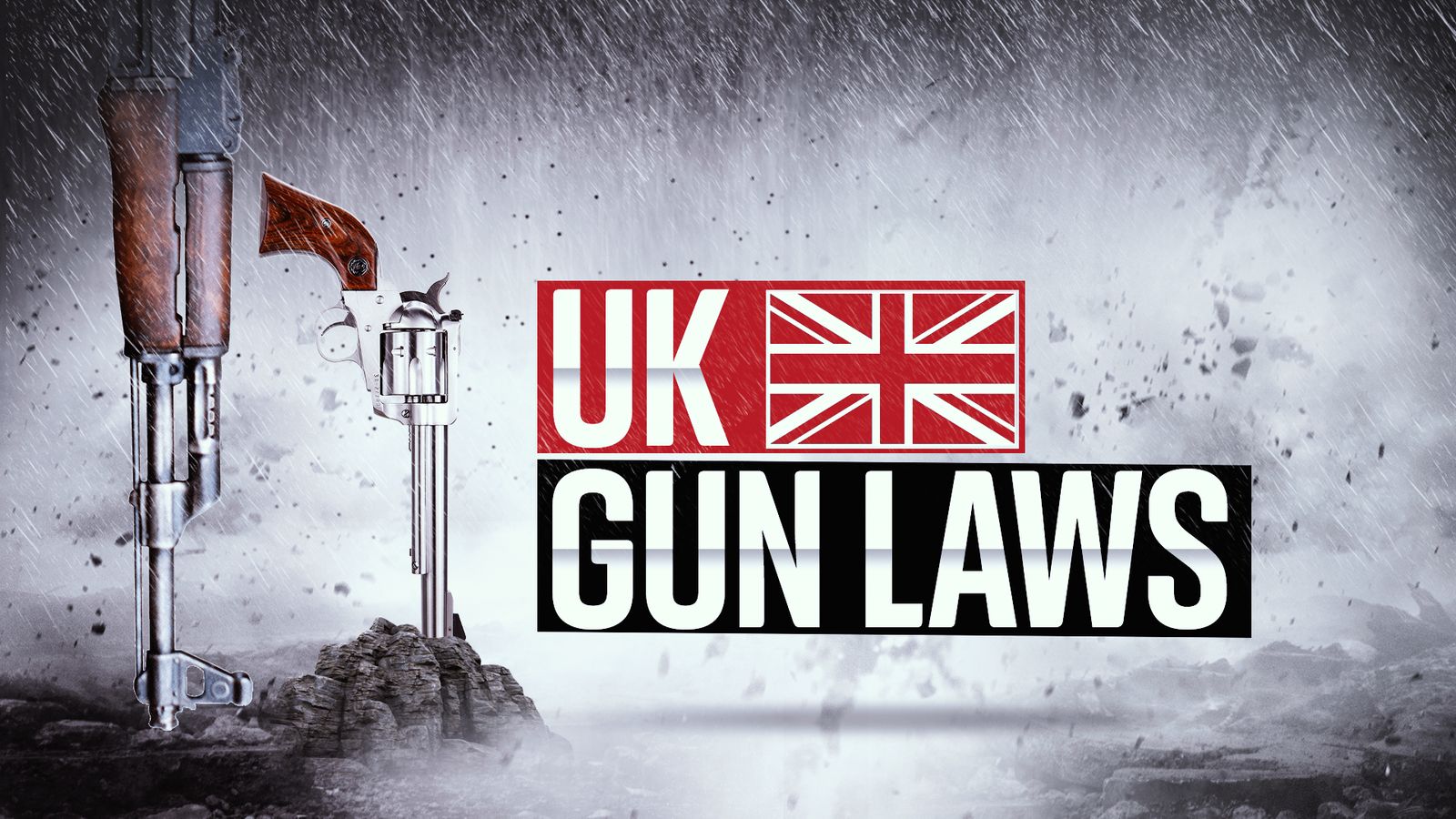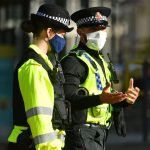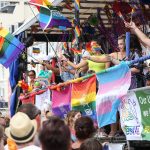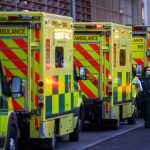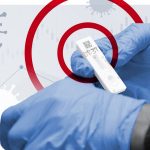The UK has some of the strictest firearms laws in the world, which means mass shootings are very rare – but they do happen.
The deaths of five people, including a three-year-old girl, at the hands of gunman Jake Davison in Plymouth is one of a handful of mass shootings (a minimum of four deaths not including the shooter) in Great Britain by a civilian.
Police have said Davison – who turned his gun on himself after killing his five victims – had a firearms licence in 2020 but did not provide more details. A pump-action shotgun was recovered from the scene in Keyham.
Follow live updates on the Plymouth shooting
These are the gun laws for the UK (not including Northern Ireland):
For anybody to own a gun in Great Britain, they need a licence that is granted by local police forces and must undergo a rigorous process to obtain one.
The majority of civilian gun certificates are issued to people for sport, wildlife management and pest control.
What kind of guns are legal?
Rifles, shotguns, muzzle-loading pistols and handguns are all allowed in the UK – and all need a licence.
Shotguns and rifles are the most common licences given as they are used for clay pigeon shooting, game shooting and deer stalking.
A shotgun is a long-barrelled gun that shoots a straight-walled cartridge containing lots of little pellets that spread out after leaving the muzzle. Single and double-barrelled shotguns are the most common, but triple ones are also allowed. They are often used for clay pigeon shooting and bird shooting.
A rifle is also long-barrelled but it uses a bullet and is generally much more powerful than a shotgun. They are used to shoot deer.
Self-loading or pump-action rifles are only allowed in smaller calibres.
Low-powered air guns, air rifles and air pistols are legal and you do not need a licence in England and Wales, but do in Scotland.
Please use Chrome browser for a more accessible video player
Handguns were banned in most circumstances after the Dunblane school massacre in 1996, although they are still allowed in Northern Ireland.
Pistols, which have a barrel shorter than 30cm, are legal when used for humane dispatch of injured animals, mainly deer.
Some antique firearms, including handguns, are exempt from licensing.
Which guns are illegal?
Fully automatic or burst fire firearms, semi-automatic or pump-action rifles, and cartridge ammunition handguns are all banned.
Pump-action shotguns with barrels of less than 24 inches or an overall length of less than 40 inches are prohibited.
Firearms disguised as another item, such as a mobile phone or walking stick, are also illegal.
Rockets and mortars, firearms that discharge noxious liquid gas or other substance are banned, including stun guns, electric shock devices, tear gas and pepper spray.
As of March this year, the use of seven specific antique handgun cartridges require a licence due to their use in criminal activity.
How do people get a licence?
People wanting to get a gun licence have to apply to their local police force, who will assess if they do not pose a threat to public safety and have a good reason to own a gun, such as going clay pigeon shooting, deer stalking or pest control on a farm.
Any previous criminal convictions, however old or minor, even spent convictions and motoring offences, must be declared, including any convictions outside Great Britain.
Two people, of good character, who have known the person for at least two years but are not related, have to be referees.
They will be asked about the person’s general character and background to help the police determine if the person is fit to possess a firearm.
A person’s GP can also be contacted and will share medical information to ensure that person is medically fit to own a gun.
A note will be placed on a gun owner’s GP record so they are aware their patient has a gun and can inform police if they have concerns about the person’s medical fitness to own a gun while they have a licence.
Please use Chrome browser for a more accessible video player
Evidence of alcohol or drug abuse, aggressive or anti-social behaviour, domestic abuse or patterns of disturbing and unusual behaviour can all lead to police determining a person is not fit to own a gun.
Specialist police officers make the decision and carry out a home visit where they interview the applicant and consider their security arrangements for keeping a gun.
The officers will check out their gun cabinet, which must be secured to a fixed wall with the keys placed securely elsewhere.
People with shotgun certificates can have an unlimited number of shotguns but they must fit in a secure gun cabinet and be noted on the certificate.
However, those with firearms, such as rifles, need to have each gun approved on their licence.
Firearm and shotgun licences are valid for five years and the holder must renew them, which could mean another police interview or visit.
When buying cartridges, bullets or a gun, or shooting at a range or shooting school, a person must show their certificate.
Organisations such as shooting clubs, museums and firearms sellers must also apply for licences.
How old do you have to be to have a gun?
A person aged 14 or over, or 15 for shotguns, can get a firearm certificate – but they are not allowed to buy or hire any firearm or ammunition until they are 18.
They are only allowed to use a gun for sport, estate management, competition purposes, as a slaughtering instrument or target shooting.
How many people have licences in the UK?
As of 31 March 2021, in England and Wales, 564,929 people held a firearm and/or a shotgun certificate – a 3% decrease of 20,422 since last year.
Nearly all applications (97-98%) were granted while 306 firearms certificates and 982 shotgun certificates were revoked.
In Scotland, 71,066 firearm and shotgun certificates were on issue by the same date, while 62 firearms certificates and 86 shotgun certificates were revoked.
